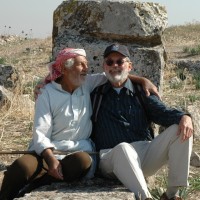
Aphasia—difficulty speaking and remembering words or names—is one of the most vexing aftereffects of stroke and other types of brain damage. Aphasia can also affect the ability to listen, read, spell, and work with numbers. After my stroke, I couldn’t remember my husband’s name or how to call 911. Every sentence was a struggle: to […]
Read More...



